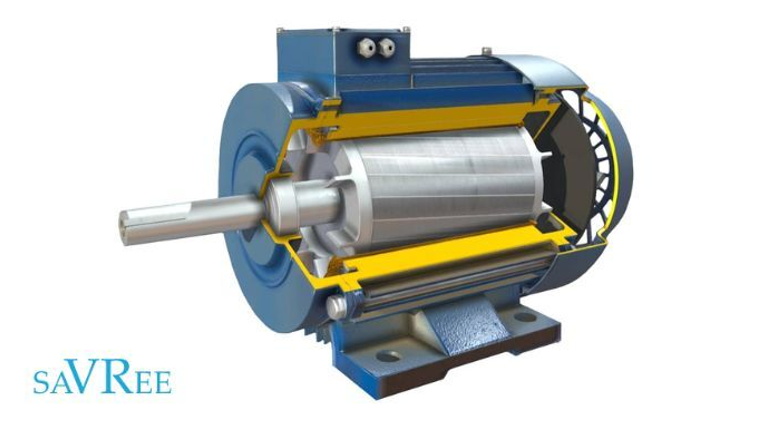Engineering is one of the most knowledge-intensive industries in the world. Engineers need to learn about everything from the intricacies of advanced machinery to the understandings of complex systems. Engineers also have to learn both theory and practical skills. Traditional training textbooks, classroom lectures, or even hands-on workshops are considered valuable, but still less effective in meeting modern learning needs.
With the rise of digital technology, video has become a powerful tool in engineering education. Their ability to combine visual, hearing, and sometimes interactive elements makes them highly effective for training engineers. Companies like saVRee are at the forefront of this movement, providing comprehensive engineering courses rich in 3D animations and video content that also simplify the most complex concepts.
Why Traditional Training Methods Have Limitations
Traditional engineering training, while basic, has many challenges:
● Material complexity: It is impossible to fully represent how machines and systems work in the moment with text-based materials.
● Limited availability: Access to hand training equipment can be expensive, as the specialized labs may not be accessible to all students.
● Time constraints: One of the biggest challenges of on-site training is often the time, especially when contrasted with a busy professional life.
These boundaries suggest a need for training to be dynamic, flexible, affordable, and interesting.
Why Videos Work So Well in Engineering Training
There is more than one option for textbooks - they are a dynamic medium that brings engineering concepts to life. Here's why videos are effective for training engineers:
1. Increase in Visualization
Engineering includes procedures and systems that are difficult to imagine without seeing them in action.
2. Retention of High Knowledge
Studies have shown that people retain information up to 65% when presented visually compared to only 10-20% through reading alone. For engineers, this means that video learning greatly improves knowledge retention.
3. Access and Flexibility
The video can be available for busy students and professionals anytime, anywhere. With online engineering training from platforms such as saVRee, the learners can study at their own pace, review the material several times, and fit the training into their program.
4. Cost Efficiency
Video-based training cuts out all the costs of hosting expensive workshops, travel logistics, and obtaining physical equipment. A single video can train thousands of members and is, therefore, very scalable and cost-efficient.
5. Talks and Engagement
Many modern training videos will also incorporate interactive elements, like quizzes, animations demonstrating 3D movement, and clickable attributes. This interaction will promote an inspirational and learning experience of the materials more enjoyable.
saVRee's Video-Based Training Approach
saVRee is a pioneer in providing technical and engineering e-learning courses that combine video, audio, and interactive 3D models. Their training material is designed for both students and professionals, covering a wide range of subjects such as:
● Mechanical engineering systems
● Electrical equipment and systems
● Industrial and process engineering
● Renewable energy and power generation
What makes saVRee unique is the integration of high-quality video content with interactive features. For example, learners studying gas turbines can not only see a detailed video explanation, but can also interact with the 3D model to closely look at the components. This combination makes complex systems easier to understand and remember.
Effectiveness of Online Engineering Training
The demand for online learning has increased in recent years, and engineering is no exception. Online training provides flexibility, strength, and global access - it is particularly valuable for professionals who want to be skilled without leaving their jobs.
When combined with high-quality video content, online engineering training becomes even more powerful. saVRee's approach ensures that the learners can imagine the applications of the real world, test their knowledge through a structured quiz, and get a certificate to demonstrate their skills.
The benefits of video-based online engineering training include:
Learning at your own speed: preventing complex subjects, rewind and reviewing them often as required.
Career advancement: Get technical skills that improve job prospects.
Practical understanding: See processes in real-world equipment and action.
Real World Application of Video Training in Engineering
Video-based training is not just a theoretical reform-it has real-world applications that benefit industries, universities, and individuals equally:
Corporate Training Program: Companies can train engineers and technicians globally without making an expensive investment in in-person sessions.
Educational support: The university can integrate video modules into the course, complement the lecture with practical visual explanations.
Self-learning engineers: Reskilling or updating as a professional with industry trends can take advantage of video content for lifetime learning.
Safety training: Video can replicate risky scenarios or machinery failure, and in a safe environment, allow the engineer to practice preparation for what is real.
Future of Engineering Education with Video
With the progression of augmented reality (AR), virtual reality (VR), and AI, training videos are becoming more immersive and personal.
Imagine engineers putting on the VR headset to run through a virtual power plant or interact with AI-driven simulations that adjusts the difficulty based on the performance. saVRee's constant innovation in giving video-based and interactive materials ensures that the learners are ready for this future.
Conclusion
Engineering is a technical profession and one that requires a thorough grounding in theory and practice. Video format provides the right means to simplify complex concepts, improve knowledge retention, and make training more accessible and attractive.
Platforms such as saVRee are bringing revolution in the way engineers learn by combining high-quality videos, interactive 3D models, and expert instructions in an easy learning experience. Enriched online engineering training with video content can achieve better results for students, professionals, and organizations, reduce costs, and be ready for the future of engineering education.
The future of engineering training is digital - and videos are leading the way.




